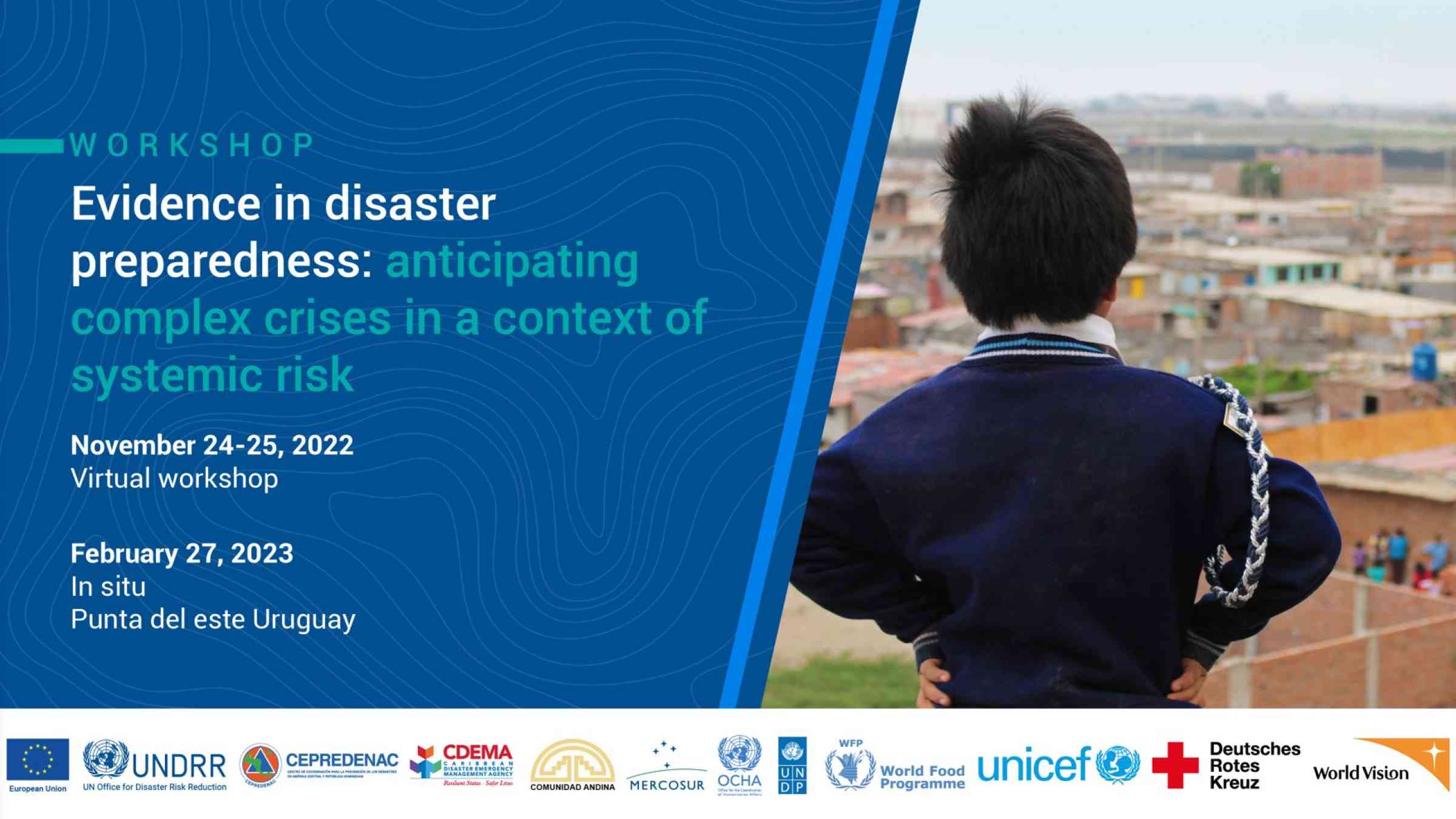UNDRR & ECHO: Evidence in disaster preparedness - anticipating complex crises in a context of systemic risk

- English
- Spanish
Time
November 24 - 9:00 a.m. (Panama Time)
November 25 - 9:00 a.m. (Panama Time)
Recordings
Day 1
Day 2
About
The Directorate General for Civil Protection and European Humanitarian Aid Operations (ECHO) has been supporting the Latin American and Caribbean region since 1994 in fulfilment of its humanitarian mandate to preserve and save lives, with the ultimate aim of reducing disaster risk conditions and contributing to increasing people’s, communities and countries resilience in the region.
The Directorate General for Civil Protection and European Humanitarian Aid Operations (ECHO) has been supporting the Latin American and Caribbean region since 1994 in fulfilment of its humanitarian mandate to preserve and save lives, with the ultimate aim of reducing disaster risk conditions and contributing to increasing people’s, communities and countries resilience in the region.
During these years, ECHO, through its Disaster Preparedness Program (DP), has invested in the region more than a total of 321 million euros in 34 countries through more than 631 projects, reaching 30 million Latin Americans and Caribbeans with the participation and involvement of a wide variety of organizations and partners. The disaster preparedness projects supported by ECHO align with the goals defined by the countries of the region (whether national or regional) and contribute to the implementation of the Sendai Framework.
In order to define funding priorities for disaster preparedness issues throughout the region, ECHO has for more than two decades conducted consultation workshops with key actors in the field both at the country and subregion level: Central America, South America and the Caribbean. As a result of the biennial Workshop, guidelines, recommendations, and strategies are created, that have helped to facilitate and complement events of a subregional nature. Since 2011, national and subregional ECHO Workshops on Disaster Preparedness have been held in conjunction with UNDRR. In 2018, for the first time, the United Nations Office for Disaster Risk Reduction (UNDRR) organized a workshop that brought together actors from the three subregions – Central America, South America, and the Caribbean – to exchange visions, experiences, knowledge and ideas on how investments in disaster preparedness make a difference.
The last two years were full of challenges at the regional and global level, such as the COVID-19 pandemic, which led us to make the decision to hold our last workshop (2021) in a totally virtual way. However, these same circumstances allowed us to reach a much larger audience than in previous workshops, especially those partners working at the community and local level.
The workshop seeks to create a space for the joint development of Disaster Preparedness knowledge that can be reflected in the actions of ECHO partners in the region. In this sense, the main objectives of this workshop are:
- Share evidence of the impact and current and future alignment of Disaster Preparedness actions being executed by ECHO partners within the thematic lines, to validate the thematic analyzes with regional and national risk management entities.
- Systematize the knowledge, mainly lessons learned and good practices, of Disaster Preparedness generated in the region to be disseminated during the VIII Regional Platform.
- Compile programmatic recommendations resulting from the systematization work carried out within the thematic groups to be disseminated during the VIII Regional Platform.
- Based on the recommendations, identify priorities for the coming years for each of the subregions.
This new edition of the workshop will focus on thematic development in greater depth thanks to the definition by ECHO partners of the four regional lines of interest. This new methodology and through a combined format (virtual-face-to-face) will allow us to have dedicated but at the same time inclusive, participatory, and open thematic spaces, as well as workspaces at all levels in a scenario that includes regional and development actors (RP23).